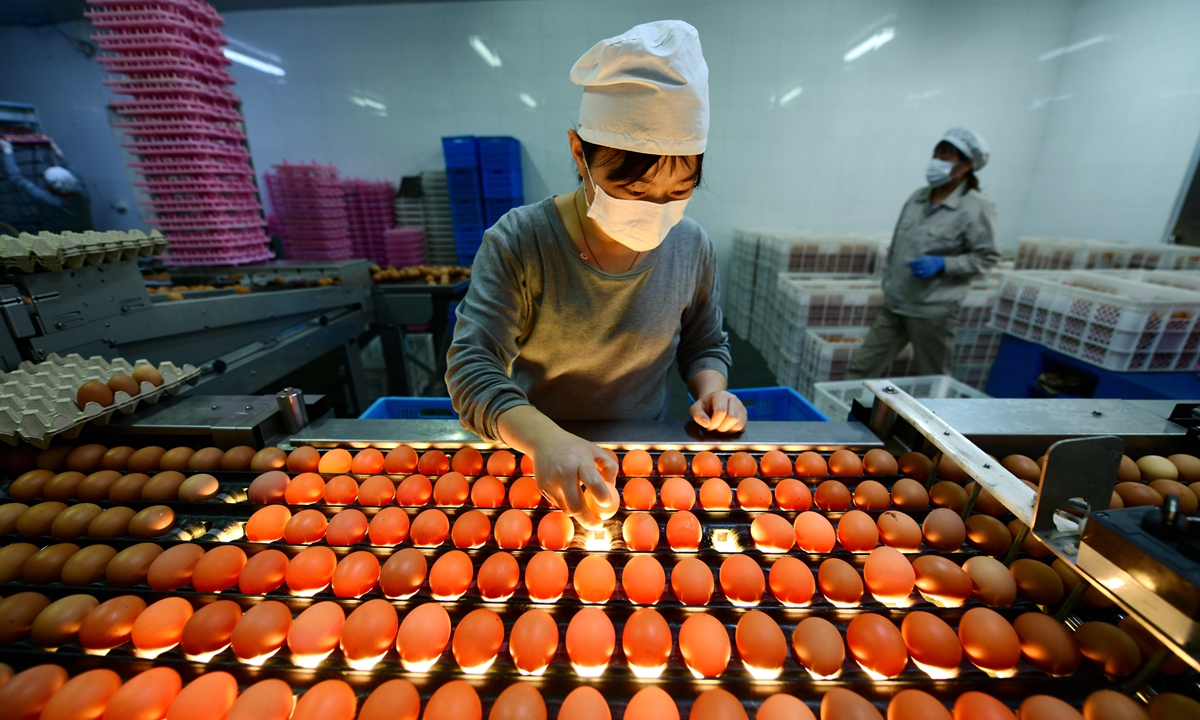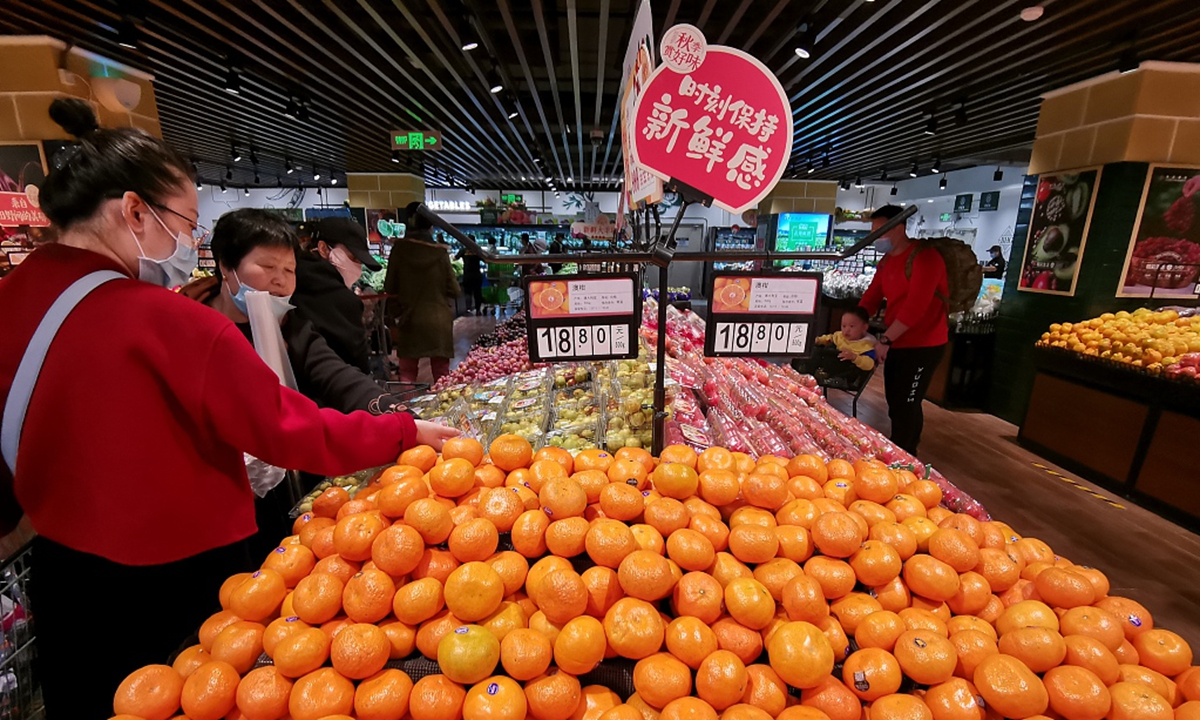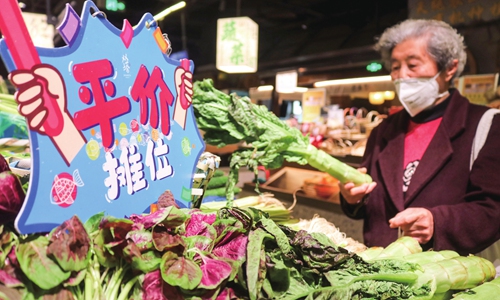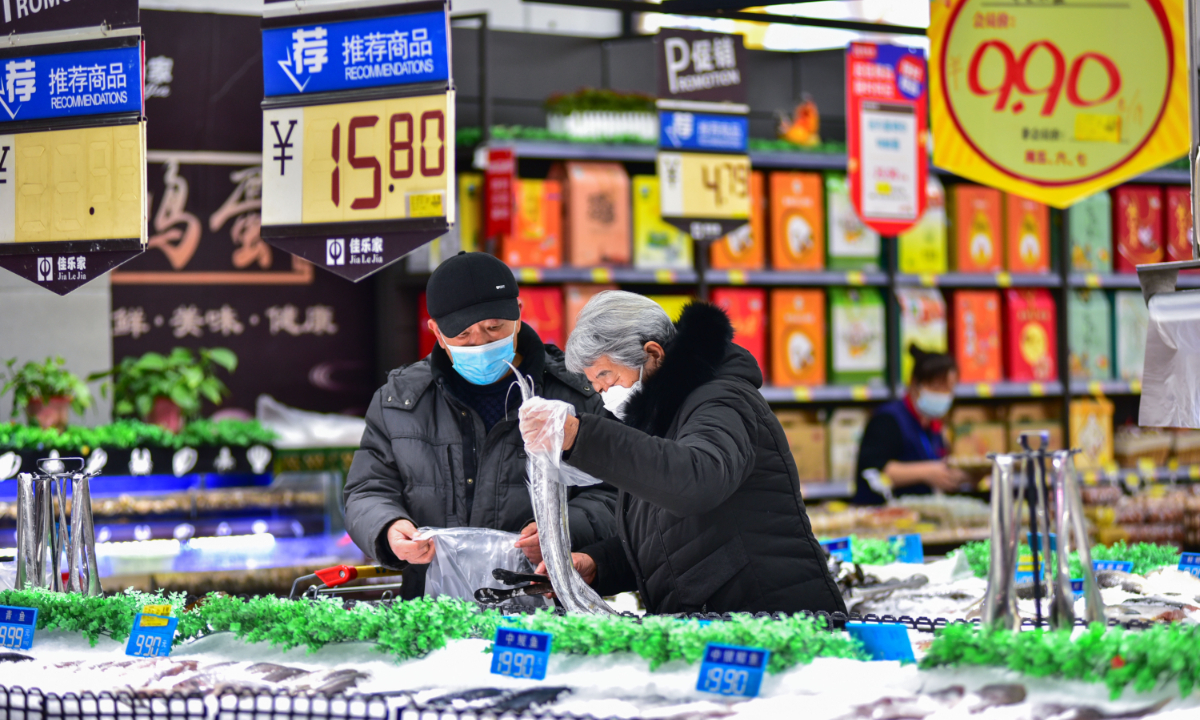
A worker sorts eggs into different grades at a modern chicken farm in East China's Jiangsu Province on May 22, 2022. Photo: VCG
China's consumer price index (CPI) edged up 0.1 percent in April, the National Bureau of Statistics (NBS) said on Thursday, showing a stable economic recovery, given effective measures taken to control consumer prices amid global inflation risks.
On a monthly basis, prices were slightly down by 0.1 percent in April, narrowing from a 0.3 percent decline in the previous month.
NBS statistician Dong Lijuan attributed the slower year-on-year increase to a high year-earlier base of 2.1 percent, the Xinhua News Agency reported. "In April, market supply was generally sufficient and consumer demand gradually recovered," Dong said.
With a rise in supplies, vegetable prices dipped by 6.1 percent in April while fruit prices were down 0.7 percent. The price of pork slid 3.8 percent amid the consumption off-season, while the prices of grain and edible oil were stable.
April's CPI growth was mainly driven by food and service items, increased by 0.4 percent and 1.0 percent year-on-year respectively.
"The trend of the CPI reflects overall weak market demand. We do not believe that there is a deflationary trend in China's economy," said Darius Tang of Fitch Bohua in a note sent to the Global Times on Thursday.
Although the CPI is rising more slowly, it is not declining. The core CPI excluding food and energy rose 0.7 percent year-on-year in April.
However, deflation is often accompanied by a decrease in overall money supply, which is not the case, Tang added.
He said that the authorities have taken policy actions, including lowering deposit rates at commercial banks, promoting employment and providing support for purchasing bulk consumer durables, which are positive for boosting consumption.
The IMF expects a strong economic recovery in China with GDP growth of 5.2 percent in 2023, and the recovery will be led by consumption, Sonali Jain-Chandra, IMF mission chief for Asia and the Pacific, told the Global Times on Thursday.
"China just opened up (from pandemic) in December 2022… Going forward, we see a rebound in economic activities, and that will lead to inflation of 2 percent at the end of the year… So I don't see deflation risks," Krishna Srinivasan, IMF director for Asia and the Pacific, said .



